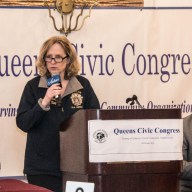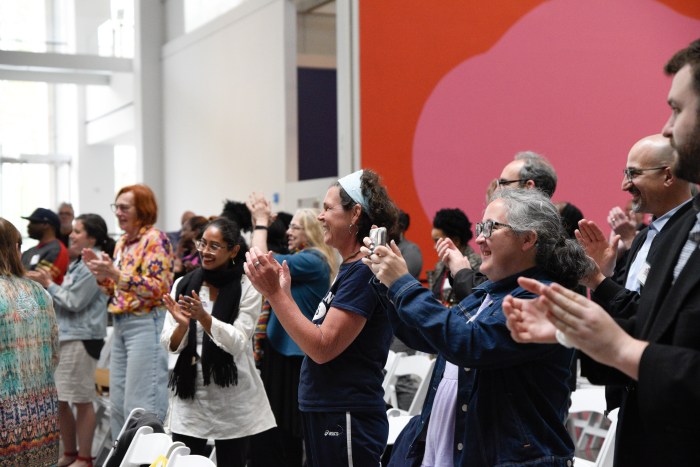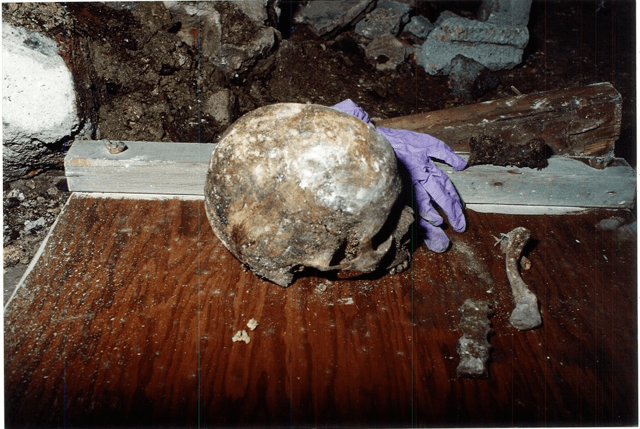By Kevin Zimmerman
In fiction the individual who points out society’s hypocrisy and questions the status quo rarely earns a happy ending.
For every member of a dead poet’s society, who stands atop a desk shouting, “Oh, captain. My captain,” to an unorthodox teacher, there are twice as many Holden Caulfields who finish their tale in the looney bin.
And yet characters continue to rock the boat in hopes of being a rebel with a cause.
Add into this mix the real-life 17th-century Jewish philosopher Uriel Acosta, who questioned the teachings of rabbinical law only to be excommunicated, publicly whipped and left to die at his own hands.
Now, Target Margin Theater’s artistic director David Herskovits has created a new version of this story, which was a centerpiece of the 19th- and 20th-century Yiddish theater canon, with a rousing production of “Uriel Acosta: I Want That Man!” at the Chocolate Factory Theater through April 5.
Even if you have no idea who Uriel Acosta was, you will find something to love about this experimental theater piece.
Dressed in blue leotards and sporting black super hero capes, the four-member cast — Don Castro, James Tigger! Ferguson, Mary Rasmussen and J.H. Smith III — play multiple roles simply by throwing on a fake beard or metallic colored wig and altering their voice and mannerisms ever so slightly.
Each of the cast members delivers a complement of fully realized characters — ranging from Acosta to activist Larry Kramer to comedian Lenny Bruce, who each questioned authority and collected enemies like Meryl Streep gathers acting accolades.
But Ferguson, who portrays Acosta for most of the production, and Rasmussen, who spends a lot of time as his love interest Judy, make the most of their parts, which allows them to play intense drama tempered with bursts of schtik.
“Surely, you don’t believe that,” Ferguson says at one point.
“I do,” replies Rasmussen. “And, don’t call me Shirley.”
Visually the play offers dozens of eye-catching treats ranging from images projected onto streams of fog pouring from a dry ice machine to scholarly books falling from the sky to an English translation of an actor’s Yiddish monologue rolling up his blue leotard like a new type of teleprompter.
Then there are Kathleen Kennedy Tobin’s three toy theaters, each the size of a flat screen computer monitor and populated by pint-sized paper characters she maneuvers with strings. Each time a toy theater becomes the focal point of the action, a small web camera broadcasts the proceedings on an oversized piece of white poster board.
The role of Acosta was the Yiddish theater’s version of “Hamlet,” Herskovits said. Each company tried to outdo its rivals with bigger spectacles and outsized performances.
These delicate and quite beautiful toy theaters allow Herskovits to bring that element into his story through a more unusual way then simply having his four actors toss on another wig and develop a different accent.
Herskovitz also adds a touch of meta-fiction into his piece by having actors call each other by their real names at various points and allowing them to discuss the story of Acosta as they perform it before the audience.
And Acosta’s story has a lot to say about blind faith, making your own way in the world and sticking to your principles despite what others may think.
As Rasmussen says at one point, “If I’m not suppose to think these things, why does God let me?”
If You Go
“Uriel Acosta: I Want That Man!”
When: Through Saturday, April 5
Where: Chocolate Factory Theater, 5-49 49th Ave., Long Island City
Cost: $20
Contact: (718) 482-7069
Website: www.chocolatefactorytheater.org
































